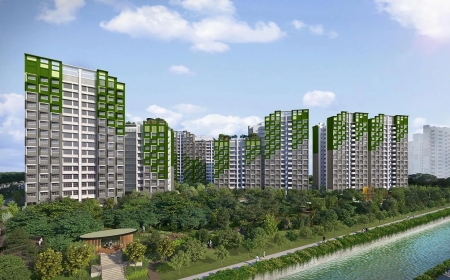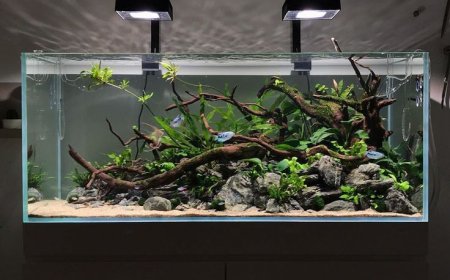How to Visit Memphis Rise Academy
How to Visit Memphis Rise Academy Visiting Memphis Rise Academy is more than a physical journey—it’s an opportunity to witness an innovative educational model designed to empower students through personalized learning, community engagement, and trauma-informed practices. Located in the heart of Memphis, Tennessee, this academy serves as a beacon for students who thrive in non-traditional learning
How to Visit Memphis Rise Academy
Visiting Memphis Rise Academy is more than a physical journey—it’s an opportunity to witness an innovative educational model designed to empower students through personalized learning, community engagement, and trauma-informed practices. Located in the heart of Memphis, Tennessee, this academy serves as a beacon for students who thrive in non-traditional learning environments. Whether you’re a parent considering enrollment, an educator seeking professional development, a community partner, or a researcher studying alternative education models, knowing how to visit Memphis Rise Academy effectively ensures you make the most of your experience. This guide provides a comprehensive, step-by-step roadmap to navigate every phase of your visit, from initial planning to post-visit reflection. With clear instructions, best practices, essential tools, real-world examples, and answers to common questions, this resource is designed to eliminate uncertainty and maximize the value of your time at the academy.
Step-by-Step Guide
Planning a visit to Memphis Rise Academy requires thoughtful preparation. Unlike conventional schools, the academy operates with a unique structure that prioritizes student well-being and individualized instruction. This means standard visitation protocols may not apply. Follow these seven detailed steps to ensure a seamless, meaningful experience.
Step 1: Research the Academy’s Mission and Values
Before scheduling any visit, take time to understand the core philosophy of Memphis Rise Academy. The institution was founded on principles of equity, resilience, and student-centered learning. It serves youth who have experienced academic disruption, homelessness, foster care involvement, or other systemic barriers. Understanding this context helps visitors approach the environment with empathy and respect.
Start by visiting the official website and reviewing the “About Us” section. Pay attention to language used to describe student outcomes, staff roles, and community partnerships. Note key terms like “trauma-informed,” “restorative practices,” and “personalized learning pathways.” This background knowledge will inform your questions and observations during the visit.
Step 2: Determine Your Purpose for Visiting
Your reason for visiting dictates the type of access you’ll need and the people you should connect with. Common purposes include:
- Parent or guardian exploring enrollment options for a student
- Educator seeking to observe instructional strategies
- Community organization representative exploring collaboration opportunities
- Researcher studying alternative education models
- Donor or funder evaluating program impact
Be specific. Instead of saying, “I want to see how the school works,” clarify: “I’d like to observe a small-group literacy intervention for students reading two grade levels below standard.” Precision helps staff prepare appropriately and ensures you receive relevant access.
Step 3: Contact the Academy to Request a Visit
Memphis Rise Academy does not offer walk-in visits. All visits must be scheduled in advance to protect student privacy and maintain instructional continuity. To initiate the process:
- Visit www.memphisriseacademy.org and navigate to the “Visit Us” page.
- Complete the online visit request form, providing your name, affiliation, purpose, preferred dates, and number of visitors.
- Alternatively, email visitrequests@memphisriseacademy.org with the same details.
- Include any accessibility needs or special considerations (e.g., language interpretation, mobility requirements).
Responses are typically sent within 3–5 business days. If you haven’t heard back after a week, follow up with a polite phone call to the main office line listed on the website. Do not assume silence means denial—many requests are delayed due to high volume or staff availability.
Step 4: Prepare for Your Visit
Once your visit is confirmed, preparation is critical. Here’s what to do:
- Review the Visitor Guidelines: You’ll receive a digital packet outlining dress code (business casual), prohibited items (no phones in classrooms, no recording without written consent), and behavioral expectations.
- Complete Required Training: All visitors must complete a 20-minute online module on trauma-informed practices and student confidentiality. This is mandatory and takes less than 30 minutes to complete.
- Coordinate Transportation: The academy is located at 2250 East Parkway, Memphis, TN 38112. Parking is available on-site. Public transit options include the MATA bus lines 14 and 22, which stop within a 5-minute walk.
- Plan Your Schedule: Confirm your visit window (typically 9:00 AM–2:00 PM on weekdays). Ask if you can observe specific programs, such as the daily advisory circle, career readiness workshop, or therapeutic art session.
Step 5: Arrive and Check In
On the day of your visit:
- Arrive 15 minutes early. The front entrance opens at 8:30 AM.
- Present a government-issued photo ID at the reception desk. You’ll be issued a visitor badge with your name and visit date.
- Meet your assigned host—a staff member trained to guide visitors through the experience. They will escort you to the orientation room.
- Attend a brief 10-minute orientation covering safety protocols, student privacy rules, and how to respond if a student becomes emotionally overwhelmed.
Remember: Students may be in various states of emotional regulation. Avoid direct eye contact if a student seems withdrawn. Do not approach or speak to students unless introduced by staff.
Step 6: Engage During Your Visit
During your time on campus, follow these engagement principles:
- Observe First, Question Later: Spend the first 20 minutes quietly watching how staff interact with students. Notice tone, pacing, and non-verbal cues.
- Ask Open-Ended Questions: Instead of “Do you like teaching here?” ask, “What does success look like for a student who’s been with you for six months?”
- Focus on Systems, Not Individuals: Avoid asking about specific students. Instead, inquire about program structures: “How do you track progress for students with inconsistent attendance?”
- Participate Only When Invited: If offered to join a circle or activity, accept graciously. If not, respect boundaries.
Visitors often report being moved by the calm, intentional atmosphere—something rarely seen in traditional schools. Allow yourself to be present, not just observational.
Step 7: Follow Up After Your Visit
A visit doesn’t end when you leave the building. The most impactful visits lead to action. Within 48 hours:
- Send a thank-you email to your host and the academy’s director.
- Reflect on your experience: What surprised you? What challenged your assumptions?
- If you’re considering enrollment, request a student portfolio review or meet with an admissions counselor.
- If you’re an educator or researcher, ask for access to anonymized program data or case studies.
- Share your experience (appropriately) on professional networks—without naming students or disclosing confidential details.
This follow-up not only builds relationships but also helps the academy improve its outreach and support systems.
Best Practices
Visiting Memphis Rise Academy is not a casual tour—it’s a professional engagement with profound ethical implications. Adhering to best practices ensures you honor the academy’s mission and protect the dignity of its students.
Practice 1: Prioritize Student Privacy Above All
Every student at Memphis Rise Academy has a right to anonymity. Even if you see a student’s face or hear their name, do not share it publicly. Avoid posting photos on social media—even if they’re “inspirational.” The academy’s policy prohibits photography without explicit, written consent from guardians and the student (if 14+). Violating this policy can result in immediate revocation of visitation privileges and legal consequences.
Practice 2: Use Trauma-Informed Language
Language shapes perception. Avoid phrases like “at-risk youth,” “troubled students,” or “failed in traditional school.” Instead, use terms like “students navigating complex life circumstances,” “learners with interrupted education,” or “resilient young people rebuilding academic confidence.” These phrases reflect the academy’s philosophy of dignity over deficit.
Practice 3: Respect the Rhythm of the Day
Memphis Rise Academy operates on a non-traditional schedule. There are no bells. Classes begin and end based on student readiness. Lunch may be served at 11:30 AM or 2:00 PM depending on the group. Do not assume timing aligns with your expectations. Flexibility is not optional—it’s essential.
Practice 4: Bring Value, Not Expectations
Visitors often come with preconceived ideas: “I’ll show them how to do better,” or “They need more resources.” Instead, approach with curiosity: “What can I learn from how they do this?” The academy thrives on collaboration, not top-down solutions. Offer support only after listening deeply.
Practice 5: Be Mindful of Power Dynamics
As a visitor, you hold positional power. Even if you mean well, your presence can alter the environment. Avoid giving unsolicited advice to staff. Do not praise students for “overcoming” their circumstances—this can imply their identity is defined by trauma. Instead, acknowledge their strengths: “I noticed how calmly Jamal asked for help when he was frustrated. That’s a powerful skill.”
Practice 6: Prepare for Emotional Responses
Many visitors are moved by the stories they hear or the resilience they witness. It’s natural to feel sadness, awe, or even guilt. Allow yourself to feel these emotions—but don’t project them onto students or staff. If you’re overwhelmed, request a quiet space. The academy provides a designated reflection room for visitors.
Practice 7: Advocate Ethically
If you’re inspired to support the academy, do so in ways that align with their needs. Don’t donate unrequested items (e.g., toys, books) without contacting the director first. They have a curated list of needed supplies and often receive more than they can use. The best way to help? Amplify their message, connect them with funders who understand their model, or offer pro bono professional services (graphic design, grant writing, legal aid).
Tools and Resources
Maximizing your visit to Memphis Rise Academy requires more than good intentions—it requires the right tools. Below is a curated list of digital and physical resources to support your preparation, engagement, and follow-up.
Official Resources
- Memphis Rise Academy Website: www.memphisriseacademy.org — Contains mission statements, program descriptions, staff bios, and visitation policies.
- Visitor Request Portal: Accessible via the website’s “Visit Us” tab. Allows you to submit, track, and reschedule visits.
- Annual Impact Report: Downloadable PDF with student outcomes, funding sources, and program evaluations. Updated every January.
- Staff Directory: Publicly available with titles and email addresses (no phone numbers for privacy).
Training and Learning Tools
- Trauma-Informed Practices Online Module: Free 20-minute course required for all visitors. Available at training.memphisriseacademy.org.
- Restorative Practices Handbook (PDF): A simplified version of the academy’s internal guide, available upon request. Explains how conflicts are resolved without punishment.
- Edutopia Case Study: “How Memphis Rise Academy Rebuilds Learning After Trauma” — A detailed article with video clips (no student faces shown).
Community and Support Networks
- Tennessee Alliance for Trauma-Informed Schools: A statewide network offering workshops and policy resources. Visit www.tntraumainformed.org.
- Memphis Education Collaborative: A coalition of alternative schools and nonprofits. Offers quarterly forums for educators and community members.
- Student Success Stories (Anonymized): Audio testimonials available on the academy’s podcast, “Rise Up: Voices from the Edge.”
Planning and Documentation Tools
- Visit Reflection Journal Template: A downloadable Word or Google Docs template to record observations, questions, and insights. Includes prompts like: “What surprised me?” and “What system might work in my context?”
- Google Maps Location Pin: Save the academy’s address with offline maps enabled. GPS signals can be unreliable in the area due to dense tree cover.
- Public Transit Planner: Use the MATA app to plan bus routes. Real-time tracking is available.
Recommended Reading
- The Body Keeps the Score by Bessel van der Kolk — Understanding trauma’s impact on learning.
- Teaching to Transgress by bell hooks — Principles of liberatory education.
- Restorative Justice in Schools by Howard Zehr — Frameworks for community-based discipline.
- Whistling Vivaldi by Claude Steele — Stereotype threat and academic identity.
Real Examples
Real experiences illustrate the power of visiting Memphis Rise Academy with intention. Below are three anonymized case studies of visitors who transformed their understanding—and their practice—through intentional engagement.
Example 1: A High School Principal from Jackson, Tennessee
Principal Lisa M. visited Memphis Rise Academy after her school’s dropout rate rose to 18%. She expected to see “a better version of her school.” Instead, she was struck by the absence of traditional classrooms.
“I saw a student sitting on the floor with a teacher, reading poetry. No desks. No worksheets. Just conversation,” she recalled. “I asked how they knew if he was learning. The teacher said, ‘We don’t measure it the same way. He’s speaking up for the first time. That’s the data.’”
Lisa returned and redesigned her school’s intervention program. She eliminated standardized test-based tracking and created “Connection Circles” led by counselors. Within a year, her school’s attendance improved by 22%.
Example 2: A Social Worker from Shelby County
Marisol R., a caseworker for children in foster care, visited to learn how the academy supported students with frequent moves. She expected paperwork-heavy systems. What she found was a “relational database.”
“Each student has a ‘Learning Navigator’—a staff member who knows their history, their triggers, their favorite snacks,” she said. “They don’t wait for records. They build trust first.”
Marisol implemented a similar model in her agency. She assigned each child a “Relationship Advocate” to coordinate between schools, foster homes, and therapists. Her caseload saw a 40% reduction in school disruptions.
Example 3: A College Student Researching Alternative Education
Jamal T., a senior at the University of Memphis, visited as part of his thesis on non-traditional high school models. He spent three full days observing and interviewing staff.
He discovered the academy used “narrative portfolios” instead of transcripts. Each student compiled a digital collection of their work, reflections, and community projects. “It wasn’t about grades,” he wrote. “It was about growth as a person.”
His thesis, “Beyond the Report Card: Identity-Centered Assessment in Memphis Rise Academy,” won the university’s Social Impact Award and was later cited by the Tennessee Department of Education in a statewide reform proposal.
Example 4: A Local Business Owner
Darnell W., owner of a Memphis-based printing shop, visited after reading a local news article. He came to donate printers. Instead, he left with a partnership.
“I thought they needed equipment,” he said. “But they needed someone to help students build portfolios for job applications.”
Darnell now runs a monthly “Career Lab” at the academy, teaching students graphic design, resume writing, and digital storytelling using the equipment he donated. Three students have secured paid internships through his program.
These examples demonstrate that visiting Memphis Rise Academy isn’t about taking—it’s about transforming. The most impactful visitors don’t come with solutions. They come with humility, curiosity, and a willingness to change.
FAQs
Can I visit Memphis Rise Academy without an appointment?
No. All visits must be scheduled in advance. Walk-ins are not permitted due to student safety protocols and the need to maintain a consistent, supportive environment.
Are parents allowed to visit during school hours?
Yes. Parents and guardians are encouraged to visit. They must complete the same visitor request form and training as all other visitors. Visits are typically scheduled after school hours or during designated family engagement days.
Can I bring my child with me on a visit?
Children under 18 are not permitted on general visits unless they are enrolled students or participating in a family orientation program. This policy protects the emotional safety of all students.
Is the campus wheelchair accessible?
Yes. Memphis Rise Academy is fully ADA-compliant. Ramps, elevators, and accessible restrooms are available. Notify the visit coordinator in advance if you require additional accommodations.
Can I take photos or videos during my visit?
No. Photography and audio/video recording are strictly prohibited without written consent from the academy’s director and the student’s guardian. This is non-negotiable and enforced to protect student privacy.
How long does a typical visit last?
Most visits last between 2 and 4 hours. Full-day visits are available for educators and researchers but require additional approval and planning.
Can I volunteer at Memphis Rise Academy after visiting?
Yes. After your visit, you can request to join the volunteer program. All volunteers undergo a background check and complete a 3-hour orientation on trauma-informed engagement.
Do they accept donations?
Yes, but only through their official donation portal. Physical donations (books, clothes, supplies) are accepted only if pre-approved. The academy maintains a curated “Wish List” on their website.
Is there a dress code?
Yes. Business casual is required. No hoodies, shorts, flip-flops, or clothing with logos or slogans. This helps create a calm, professional environment that respects student dignity.
What if a student becomes upset during my visit?
Staff are trained to handle emotional moments. Do not intervene. Step back, remain calm, and notify your host immediately. Your presence should never add stress to a student’s experience.
Can I interview staff for my article or research?
Yes. Submit a formal request via email. The academy approves interviews on a case-by-case basis and may require you to sign a confidentiality agreement.
Conclusion
Visiting Memphis Rise Academy is not a routine outing—it’s a transformative encounter with an educational philosophy that places humanity before hierarchy, healing before testing, and dignity before deficit. Whether you’re a parent, educator, researcher, or community member, your visit carries weight. It is an act of witness, a gesture of solidarity, and a potential catalyst for change.
This guide has provided you with a detailed, practical roadmap—from the first click on the website to the final thank-you note. But the most important step is the one you take when you leave: the decision to carry what you’ve learned into your world. Memphis Rise Academy doesn’t just serve students—it challenges every visitor to reconsider what education can be.
Do not visit to fix. Visit to learn. Do not come to judge. Come to listen. And when you leave, ask yourself: What will I do differently tomorrow because I saw what’s possible here?
The answer to that question is where true change begins.































